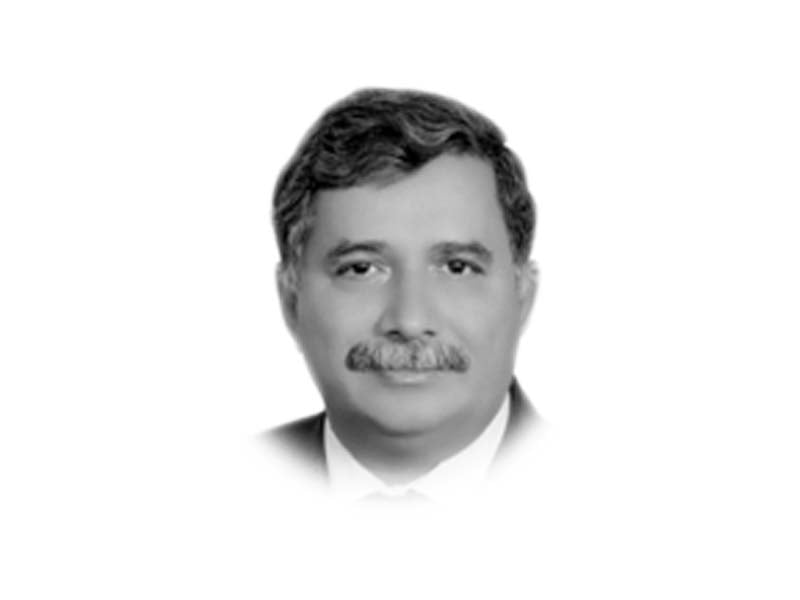
Heated debates continue in the mainstream and social media on issues related to democracy, arbitrary actions, and tarnishing the fair names of state institutions. Venomous allegations to score political points can be clearly heard in these debates.
In the backdrop of this, a mysterious character, Badar Rashid, sprang up from nowhere to lodge an FIR against the PML-N top brass, under Section 10 (cyber terrorism) of the Pakistan Electronic Crimes Act (2016) and sections 120-A (definition of criminal conspiracy), 120-B (criminal conspiracy), 121-A (conspiracy to wage war against Pakistan), 123-A (condemning the creation of the country and advocating the abolishment of its sovereignty), 124-A (sedition), and 153-A (promoting enmity between different groups) of the Pakistan Penal Code. Many of the accused have served the country at the policymaking level, shaping the destiny of the country.
This vicious trend of dubbing each other a traitor is nothing new. The political history of the country is replete with such malicious accusations, meant to corner political opponents on trumped-up charges of treason, maladministration, or corruption. In the initial days after the independence, the government of Khan Abdul Jabbar Khan, popularly known as Dr Khan Sahib, in the NWFP (now Khyber-Pakhtunkhwa) was dismissed through an executive order, so was the first government of Sindh led by Ayub Khuhro as he was opposed to annexing Karachi as a federal territory. The same game of conspiracy to undermine political opponents continued even in Punjab. The greed to assume power was so deep that in order to bring down the opponent’s government, even religious riots were fomented in 1953. A pretext was thus provided for the imposition of a mini martial law in Lahore, with the armed forces having the first taste of power in a weak political order.
The sense of a weak political order was reflected in the preface of Friends not Masters, a book written by Field Martial General Ayub Khan, arguing that politicians were self-serving and didn’t give importance to the broad national perspective. He saw himself as the redeemer of the nation who wanted to unite people. He had sensed that the general elections were going to be stand-up fights and that there would be large-scale disturbances all over the country; and civil authority, already groaning under the heels of the politicians, would be incapable of dealing with the situation. He argued that the army could not remain unaffected by the conditions around it; nor was it conceivable that officers and men would not react to the political intrigues, corruption, and inefficiency manifest in every sphere of life.
In a note written on August 28, 1958, General Ayub Khan claimed that he had been in receipt of quite depressing reports about economic distress, maladministration through political interference, frustration and complete loss of faith by the people in the political leadership inclusive of the president. The general belief was that none of those men had any honesty of purpose, integrity or patriotism, to root out evils of the country which would require drastic action. The general belief was emerging that even Ayub and the army were failing to do their duty by not saving the people from those tyrants.
These views clearly establish that martial law was not clamped suddenly. The die was already cast as in his own words, “the hour had struck”. The moment so long delayed had finally arrived as Ayub sat in his railway saloon on October 4, 1958. As stated by him, president Sikandar Mirza told him that he, as the constitutional head of government, had come to the conclusion that the country could no more be run on a constitutional basis. Ayub asked for having the same in writing. “He hummed and hawed but finally agreed to give me the letter after two or three days.”
These expressions from the autobiography explain the mindset prevailing then about civil dispensation. Has the situation changed after the passage of six decades? Indeed, the answer is no. Civilian governments have been disbanded more or less on the same charges with regular intervals. The ascendency of the non-elected institutions in the corridors of power remained supreme, giving little chance to democracy to take firm roots.
Tragically, all such actions had been taken on the pretext of poor governance and not running the country according to the Constitution amid claims to uphold the rule of law. But, paradoxically, all such acts negated the concept of governance, as one of its essentials is the rule of law. The constitution is always considered to be the supreme law of the land; therefore, its negation itself contradicts the claim of adherence to the rule of law.
In the context of present day Pakistan, the political system according to the Constitution of Pakistan is based on the trichotomy of powers of the legislature, executive, and the judiciary. Similarly, all acts have to be in accordance with the law as laid down in Article 4 of the Constitution. Therefore, governance and law are interlinked, as such all institutions, and departments of the government have to work within their known boundaries.
It is high time for us to understand the supremacy of the Constitution; and to be out of the woods, we need to maintain equilibrium as enshrined in the Constitution of Pakistan, through collective wisdom.
Published in The Express Tribune, October 21st, 2020.
Like Opinion & Editorial on Facebook, follow @ETOpEd on Twitter to receive all updates on all our daily pieces.


1732569774-0/Baymax-(2)1732569774-0-165x106.webp)










COMMENTS
Comments are moderated and generally will be posted if they are on-topic and not abusive.
For more information, please see our Comments FAQ